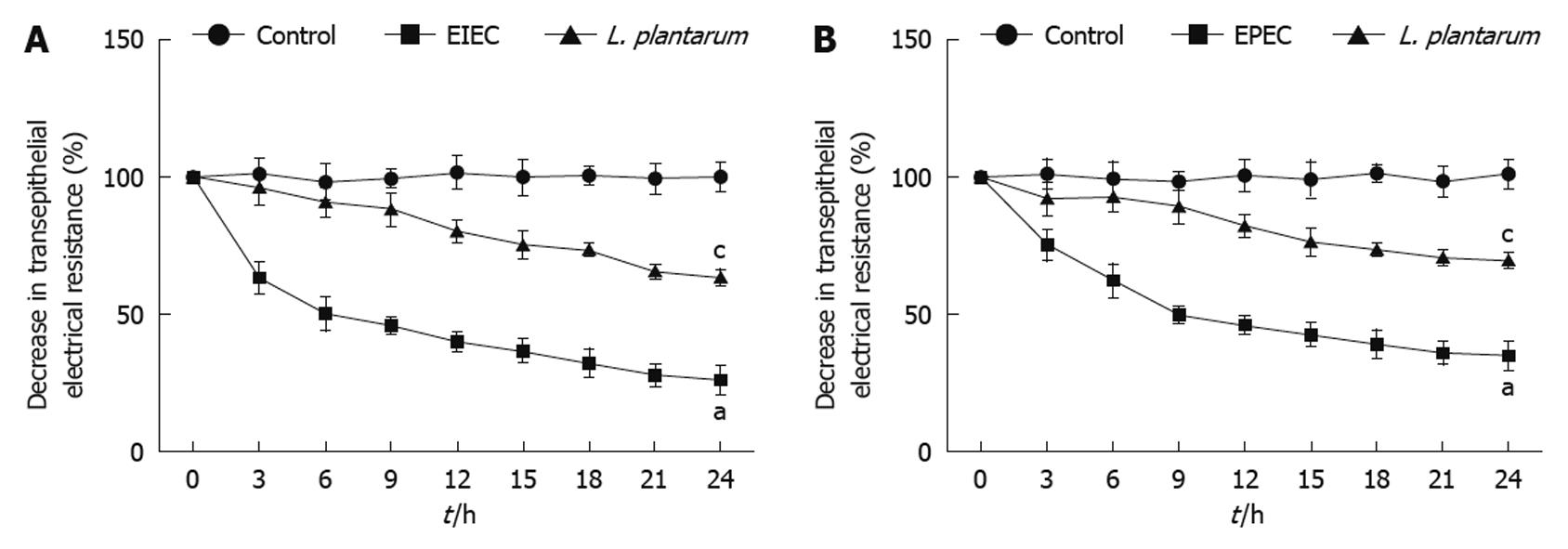Copyright
©2010 Baishideng Publishing Group Co.
World J Gastroenterol. Dec 7, 2010; 16(45): 5759-5765
Published online Dec 7, 2010. doi: 10.3748/wjg.v16.i45.5759
Published online Dec 7, 2010. doi: 10.3748/wjg.v16.i45.5759
Figure 1 Lactobacillus plantarum inhibited the decreased transepithelial electrical resistance through NCM460 cells induced by enteroinvasive Escherichia coli (A) or enteropathogenic Escherichia coli (B).
A: After infection with enteroinvasive Escherichia coli (EIEC) for 24 h, transepithelial electrical resistance (TER) of NCM460 monolayers was decreased significantly compared with the value in the control group. However, TER of EIEC-infected NCM460 monolayers, when simultaneously co-incubated with Lactobacillus plantarum (L. plantarum), was significantly higher than those in the EIEC-infected NCM460 monolayers; B: Similar results were obtained in the experiments with enteropathogenic Escherichia coli (EPEC). The data at each time point represent the mean ± SD obtained from four individual NCM460 monolayers. aP < 0.05 vs control group; cP < 0.05 vs corresponding EIEC or EPEC group.
-
Citation: Liu ZH, Shen TY, Zhang P, Ma YL, Moyer MP, Qin HL. Protective effects of
Lactobacillus plantarum against epithelial barrier dysfunction of human colon cell line NCM460. World J Gastroenterol 2010; 16(45): 5759-5765 - URL: https://www.wjgnet.com/1007-9327/full/v16/i45/5759.htm
- DOI: https://dx.doi.org/10.3748/wjg.v16.i45.5759









